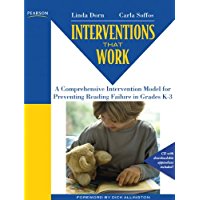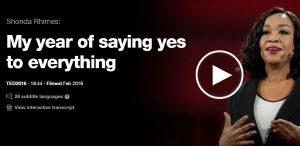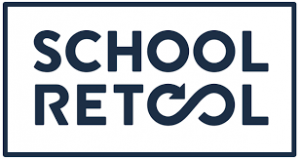 Quickly introduced to the intricacies of my new job, I was handed a well-developed grant plan to execute. The grant is known as the Early Literacy Grant and the funds must be used to enhance K-2 literacy instruction. From county-level conversations, I know that districts are using these funds in many ways, such as summer-school programs, purchasing formative assessment modules, and extended-school-day stipends. The plan in my district, written by my predecessors, has two components for 1st grade students and teachers:
Quickly introduced to the intricacies of my new job, I was handed a well-developed grant plan to execute. The grant is known as the Early Literacy Grant and the funds must be used to enhance K-2 literacy instruction. From county-level conversations, I know that districts are using these funds in many ways, such as summer-school programs, purchasing formative assessment modules, and extended-school-day stipends. The plan in my district, written by my predecessors, has two components for 1st grade students and teachers:
- Targeted intervention groups
- Enhanced professional learning for teachers
This blog is about our journey so far.
Targeted Intervention Groups
The targeted intervention groups include children with the lowest achievement on the Observation Survey, a series of six literacy observations including letter identification, word tests, concepts about print, writing vocabulary, hearing and recording sounds, and running records on leveled text. An Observation Survey of Early Literacy, by Marie Clay, is also one of the approved measures of achievement for the 3rd Grade Reading Law.
Most of the grant money is being used to pay substitute teachers to enhance this targeted intervention. With the assistance of a 1st grade assigned substitute, each 1st grade teacher has 45 minutes daily to run interventions with this group of children, for 90 days. The intervention typically runs for 20-30 minutes with the additional time used by teachers for formative assessments (progress monitoring) to set goals and next steps for the individual students.
Using consistent data sets, like running records and checklists from Interventions That Work, by Dorn and Soffos, the teachers know if a student is progressing toward grade-level independence–or possibly if they have reached independence with the intervention. In this way, the groups are malleable. Students may remain in the group or move out to the general classroom groups.
In December reflections, following 18-32 days of intervention (dependent on substitute start date), teachers observed that students were growing in their literacy skills, based on common assessments. Many teachers reflected on the wish for this opportunity with children whom they had last year. I always assure them that we can only be our best that day and we can always hope to grow, which most would say that we’ve done with this program.
Enhanced Teacher Professional Learning
Other important uses of this grant money are days of professional learning, because the best way to enhance achievement in a district is to increase the professional capacity of the teachers. We conducted three days of learning for each teacher throughout September and October, so that teachers could start this practice in a common way. Teachers have remarked that the learning days were valuable and something that they look forward to. One teacher notes, “Leaving kids at the beginning of the year was hard, but the rewards are there; learning new practice and implementing the learning has had the biggest impact. I am happy to have been trained and been able to use that to impact students.”
Additionally, in conversations across buildings on our learning days, teachers see the value in common practice and the common language of practice while having professional dialogue, and they hope to increase that capacity among their kindergarten and 2nd grade colleagues in the coming years. The topics that we have covered so far include observation surveys, progress monitoring, and specific training on Assisted Writing and Guided Reading Plus intervention groups from the Comprehensive Intervention Model portfolio (Center for Literacy UALR). As we continue with the year, I will continue to reflect with teachers, and we will have additional learning days. I’ll let you know how the story turns out, but so far the journey is powerful.
 Amy Gurney (@agurney_amy) is an ELA and Social Studies Curriculum Coordinator for Walled Lake Schools. She has a Master’s degree from Michigan State University in Educational Administration and is currently pursuing an Education Specialist in Educational Leadership at Oakland University. She is a current Galileo Leader. She worked on the MAISA units of study and has studied reading and writing workshop practice and conducted action research.
Amy Gurney (@agurney_amy) is an ELA and Social Studies Curriculum Coordinator for Walled Lake Schools. She has a Master’s degree from Michigan State University in Educational Administration and is currently pursuing an Education Specialist in Educational Leadership at Oakland University. She is a current Galileo Leader. She worked on the MAISA units of study and has studied reading and writing workshop practice and conducted action research.


 Rick Kreinbring (
Rick Kreinbring ( Like most teachers in Michigan, last week I spent two days proctoring the state’s SAT and ACT Work Keys tests. I collected the box of tests, read from the script, made sure there were no errant marks, and was generally absolutely bored.
Like most teachers in Michigan, last week I spent two days proctoring the state’s SAT and ACT Work Keys tests. I collected the box of tests, read from the script, made sure there were no errant marks, and was generally absolutely bored.  My earliest “hacks” came when I moved the focus away from the teacher, me, as the primary audience for students’ writing, and
My earliest “hacks” came when I moved the focus away from the teacher, me, as the primary audience for students’ writing, and